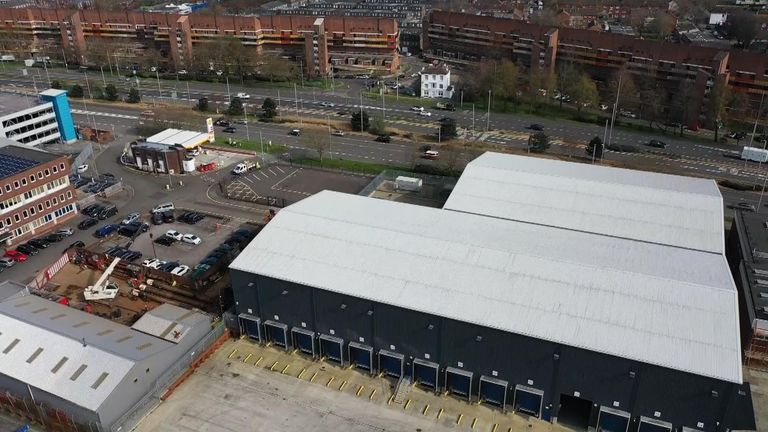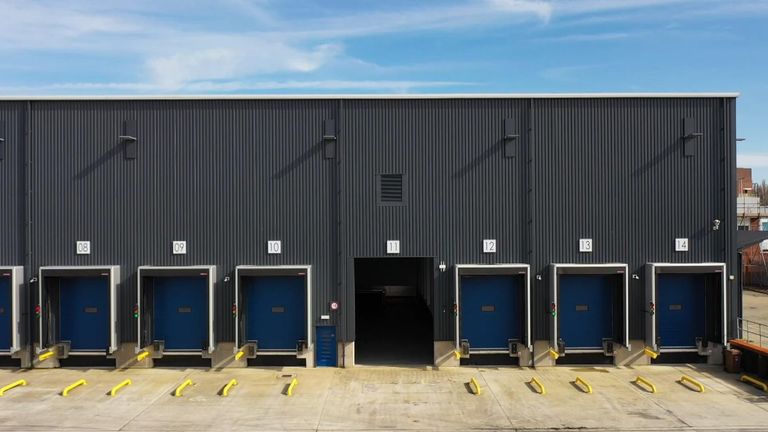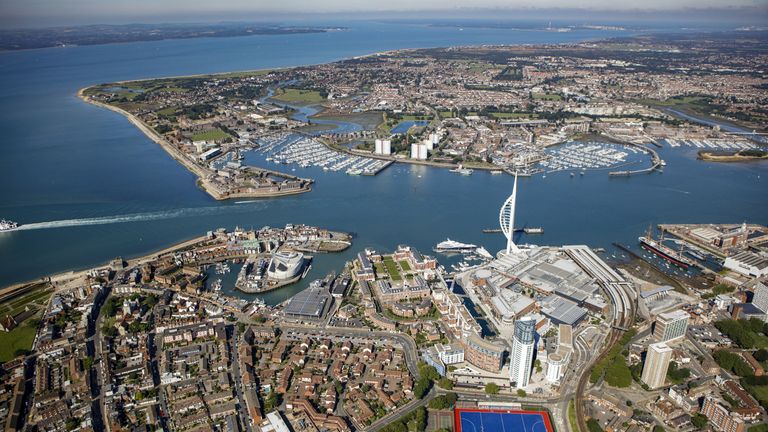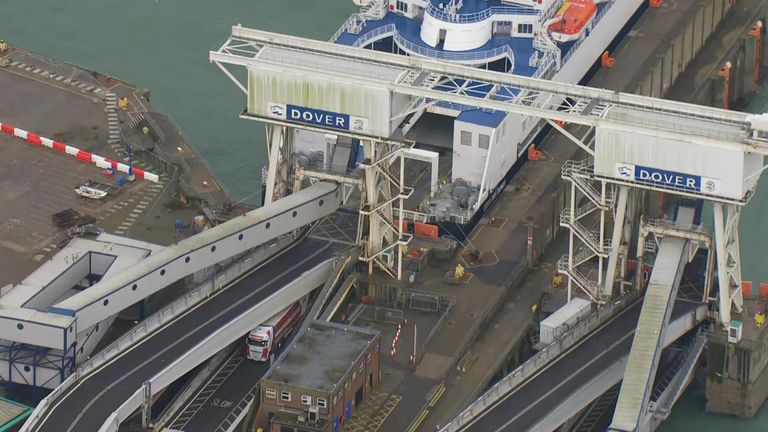
Portsmouth’s new Brexit border post could be dismantled – but has never been used
By Surja | Published | No Comments
A new £24m border control point may have to be dismantled as repeated changes to post-Brexit border arrangements make it commercially unviable.
A facility at Portsmouth International Port will start carrying out physical checks on food and plant imports from the EU at the end of next month, but changes to border protocols since it was built mean half of the facility will never be used.
The centre, built with a grant of £17 million from central government and £7 million from Portsmouth City Council, which owns the port, is designed to inspect up to 80 truckloads of produce a day. The port is currently expected to handle only four to five cargoes per day.
As a result, half of the 14 loading stations will never be used and the annual running costs of £800,000 cannot be included in the inspection fees charged to importers.
Portsmouth is not alone, with ports across the country grappling with how to make the oversized, oversized buildings commissioned by the government pay for themselves at a time of significantly reduced passenger traffic.
The Department for Environment, Food and Rural Affairs said it had spent £200 million to partly fund new facilities to deal with post-Brexit border controls at 41 ports. It acknowledged that fewer inspections would now be required and said ports were free to use spare capacity as they wished.
The problem for Portsmouth is that the facility was built for a purpose in a secure area with no obvious commercial use, so the port is considering building a new, smaller facility and decommissioning or even demolishing the existing building , for a commercially viable project.
“This is for Defra [Department for Environment, Food and Rural Affairs] Mike Sellers, director of Portsmouth International Ports and chairman of the British Ports Association, told Sky News the specifications for the border operating model were already in place when it was announced, but had been on hold for two years as inspections were delayed.
“The border will now run with far fewer checks and we will struggle to cover the running costs of around £800,000 a year.
“So we have to look to the future and work out the strategically best way to minimize the impact on the port and the council.
“I know it sounds ironic but it could be to build another border control point that is much smaller than this facility and look to find commercial ways to generate revenue through this facility or to demolish it and use the operational land for other uses .”
‘Total and utter chaos’
Meanwhile, port owner Portsmouth City Council wants the government to repay £7m of its £24m construction cost.
“As a council we had to find £7 million to help build this facility and now we are changing our minds for the fifth time as to how many inspections will be carried out. Half of the building will be vacant, unused, unused and yet, this But it costs Portsmouth City Council taxpayers a huge amount of money,” said Gerald Vernon-Jones, the council’s head of transport.
If the Portsmouth facility closes, it could impact the security of UK food imports as the port is the main alternative route to Dover, providing much-needed resilience to supply chains that rely heavily on short Channel routes.
Mr Vernon-Jones said: “It’s a complete mess, we have a huge white elephant here.”
“If we can’t afford to have port health staff here doing inspections every day, then everything has to go through Dover and that’s a huge risk to the country. If Dover closes for whatever reason, strike action or whatever, then the whole The nation’s food will be held to ransom.”
Meanwhile, the British Ports Association has raised concerns with ministers about readiness for a new inspection regime at new Border Control Points (BCP), which is due to be implemented in less than six weeks.
The trade body said the ports had not yet been informed when the crossing would need to open or how many staff from both national inspection agencies would be needed on site.
Crucially, they also don’t know how much they will be able to charge importers for inspections, as the government has yet to reveal how much it will charge at the state-owned BCP, which is based in Sevington, Kent, 20 miles inland from Dover.
Given Dover’s dominance of UK food imports, so-called common user charges will set prices for other markets, but other ports still don’t know where to set charges.
Defra said the negotiated fees will be communicated to industry soon.
The Portsmouth plant was already obsolete before it even opened, its fate emblematic of delays and indecision over import controls since the Brexit deal came into effect in January 2021.
Although UK exports to the EU have faced border and customs controls since January 1, 2021, the UK government has postponed similar checks on EU imports five times and changed the control system.
read more:
UK ports threaten legal action after spending millions on border control posts
New post-Brexit border controls will cost businesses £330m a year
Post-Brexit checks on goods entering UK from EU announced after delay
The original July 2021 deadline for physical inspections of animal and plant products was pushed back because the BCP was not ready, and then further delayed, which the government said was having an impact on food supply chains and a cost-of-living crisis.
In April 2022, the government announced an overhaul of its border plans, introducing a new risk-based approach that would limit inspections to certain high- and medium-risk food and plant categories.
This was followed by another delay, before a phased implementation finally began in January, with medium-risk food and plant imports requiring a health certificate signed by a veterinarian or plant health inspector, followed by medical inspections starting on April 30.
Even if checks on imports are reduced, the government’s own analysis shows border controls will still add £330m a year to the cost of trade with the continent and fuel food inflation.
A spokesman for the Department for Environment, Food and Rural Affairs said: “Our border control points have sufficient capacity and capacity, including for temperature-controlled cargo, to handle the volume and type of checks expected and authorities will work to minimize disruption as these checks are introduced .”
Follow us on Google news ,Twitter , and Join Whatsapp Group of thelocalreport.in









